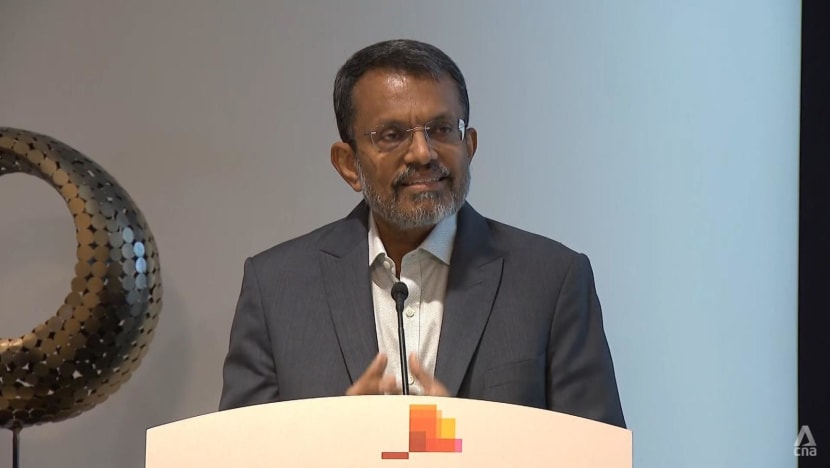Achieving net zero an economic opportunity and moral imperative: Singapore’s ambassador for climate action
"Ultimately it is nature that will call the shots," says Mr Ravi Menon.

Screengrab of Singapore’s Ambassador for Climate Action Ravi Menon delivering opening remarks at the Ecosperity Conversations 2025 on Feb 21, 2025.

This audio is generated by an AI tool.
SINGAPORE: Achieving net zero is not just an international obligation but also an unprecedented economic opportunity, Singapore’s Ambassador for Climate Action Ravi Menon said on Friday (Feb 21).
It is also "a moral imperative" to safeguard future generations, he added.
Speaking at the Ecosperity Conversations event, organised by Temasek in partnership with PwC Singapore, Mr Menon highlighted three forces driving climate action globally - politics, economics and nature.
He warned that amid the political and economic factors at play, "ultimately it is nature that will call the shots".
"The timeline is not set by electoral cycles or cost curves; it is set by nature," Mr Menon said.
"Whether we are a country or a company, the longer we delay action, the more disorderly the transition will become for us."
Mr Menon, the former chief of the Monetary Authority of Singapore, said global political developments on the climate front have been "more negative than positive".
Recent political developments in the US "clearly posed challenges for climate action", he said, noting the country's withdrawal from the Paris Agreement for a second time and President Donald Trump's promise to boost oil and gas production.
"Political developments in the US represent a clear step back for climate action," Mr Menon said.
Political support for climate action has also weakened in other countries, Mr Menon noted, citing how environmental concerns have taken a back seat in Europe amid voters’ anxieties due to the war in Ukraine and frustrations with the higher cost of living.
"We cannot rule out some countries lowering their climate ambitions because of the position taken by the US," said Mr Menon.
He noted that only 13 out of 195 countries had submitted their 2035 climate pledges by the Feb 10 deadline set by the United Nations. Singapore was among the 13.
It remains to be seen whether those who have not submitted will pull back their commitment to climate action, he said.
On the economics front, Mr Menon said there has been some positive news, including the "sustained and significant" decline in the cost of renewable energy globally.
He cited the fall in battery storage project costs by nearly 90 per cent between 2010 and 2023. Storage is critical for overcoming the intermittency of renewable energy and promoting its adoption.
He also noted that renewable energy generation is now cheaper compared to fossil fuels and that cheaper renewables are making the electrification of the economy more viable.
However, challenges remain in the production of low-carbon hydrogen where equipment and financial costs have increased, threatening the viability of projects.
SINGAPORE "FULLY COMMITTED" TO CLIMATE ACTION
Amid these challenges, Singapore's position is clear, said Mr Menon. The country has committed to a 2035 emissions target of between 45 to 50 million tons of carbon dioxide equivalent.
"The 45 million tons target puts us on a linear trajectory to net zero in 2050," he added.
"Where we need to be in the long-term is very clear - net-zero by 2050; a competitive green economy; and a climate-resilient society."
He added that Singapore is not blind to short-term political and economic realities but said the country will invest in what is necessary for its long-term future in a low-carbon and climate-impaired world.











.jpg?itok=9G9CEVaD)




